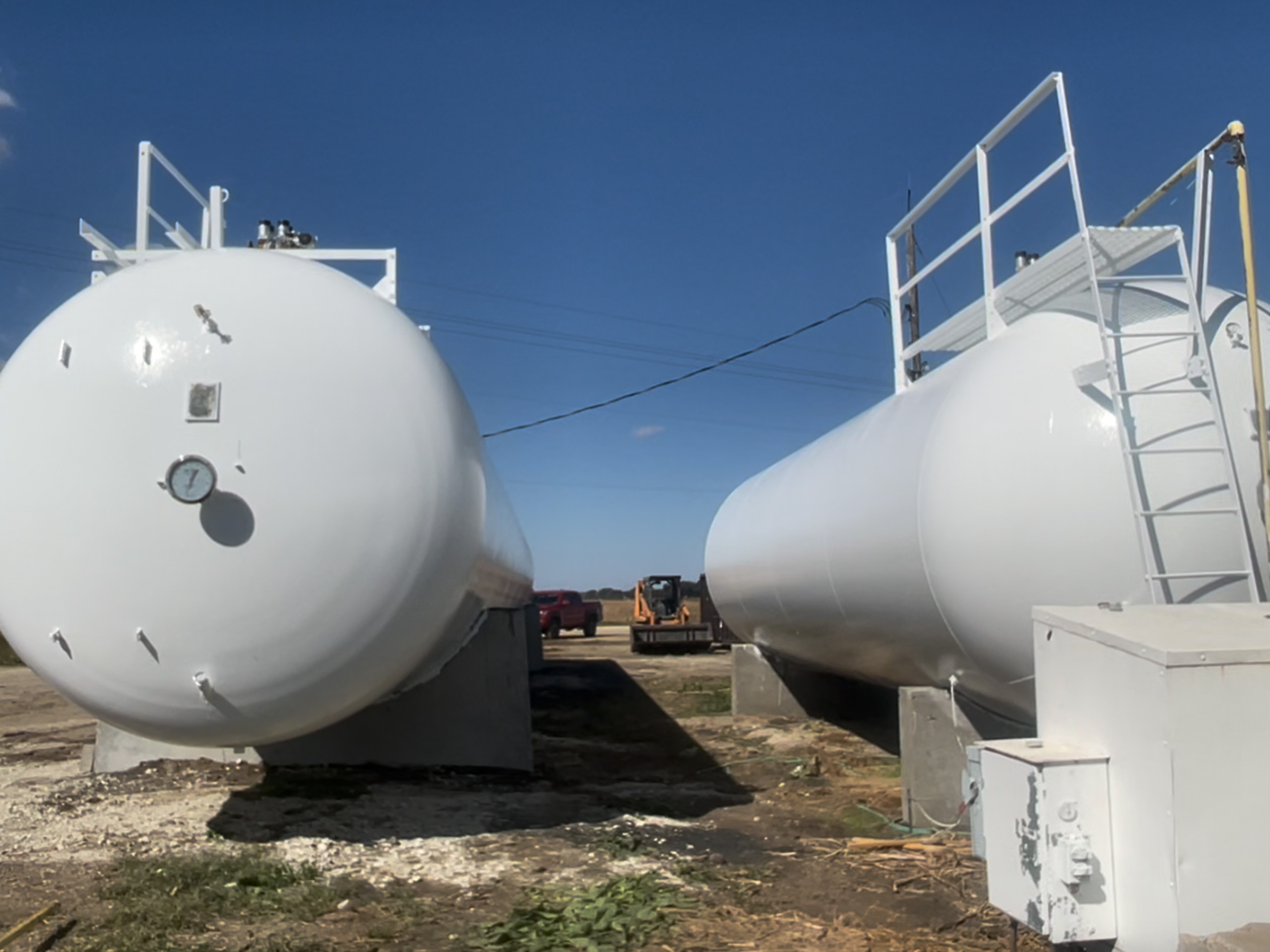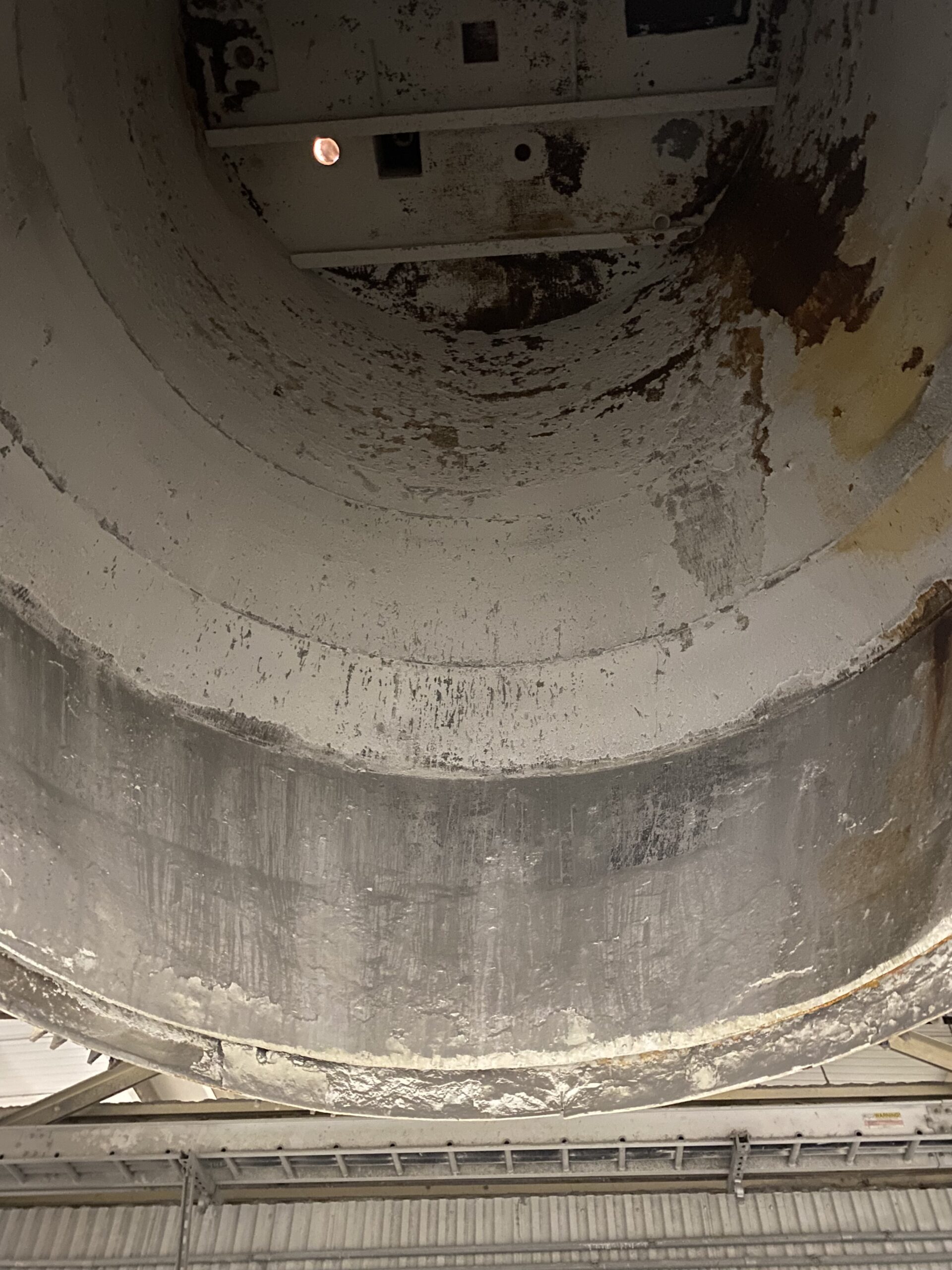What Are Industrial Tank Linings?
Food manufacturing, pharmaceuticals, and petroleum are a few industries where it is common to have exterior storage bins, tanks, or silos. With the high demand for these industries to be up and running, taking the time to consider coating the inside and outside of your tanks sounds like a no-brainer. Far too often, however, we see firsthand the impact this has on a business when it's not done or done correctly.
TAKING CARE OF BUSINESS FROM THE INSIDE
When a tank lining is not done, the impact on the facility's profitability can be significant leaving the product compromised or even potentially reducing production capacity. In worse cases, a facility may even have to be shut down. Think of it this way, when your tanks are out of service, they aren't making you any money. Time is money.
Blast It Clean is the industry service leader in steel tank lining systems for corrosive service conditions. Our crew is trained and experienced in corrosion-resistant lining systems. Our work includes both internal and external tank linings.
LONG LIVE THE LINER

Corrosion is one of the biggest threats to silos and tanks and can impact both the exterior and interior. This can pose the risk of contamination to food manufacturing facilities. A tank liner is the single greatest protection you can provide for your silos and storage tanks.
A tank liner is a material applied to the inside and outside of a tank to provide the ultimate protection of the substrate material from chemical attack. This helps prevent substrate corrosion, maintain product purity, decrease erosion, and prevent contamination and leakage. It can also improve the ease of cleaning the tank. These liners come in specific fabrics that are made from heavy-duty material.
Water tank liners are special coatings applied to the outside and inside of a tank to ensure ultimate protection from chemical attacks. These treatments maintain toughness and offer corrosion resistance in metallic and concrete tanks. You can find water tank lining in tanks that provide storage for chemicals, reactive solvents, and even petroleum products. Below is a breakdown of the common types of tank liners for water systems present in the market.
WHAT ARE YOUR TANK LINING OPTIONS?
There are many high-performance coating and tank lining products available to you. To take advantage of the protection that these products provide, call in the professionals. It’s important when selecting a lining that you choose one that has the correct chemical resistance to be used with the stored contents of your tank. This will ensure the quality of your product is maintained.
7 COMMON TYPES OF WATER TANK LININGS
- Epoxy Linings - These liners work by putting a watertight barrier between the water and the steel to prevent rust. They are strong and capable of working under high-temperature environments.
- Polyurethane Linings - These liners are more or less flexible and ideal for concrete-made structures.
- Vinyl Ester Tank Linings - These liners are made from vinyl material and are mostly used in chemical industries due to their high resistance to temperature and chemical damage.
- Polyurea Tank Liners - With advances in technology, these newer liners are applied in gel-like form using specific equipment. These tank liners are abrasion-resistant and solvent-free, providing strength and flexibility.
- Comentituous Liners - The two common types of cementitious liners are epoxy and polymer linings. These liners are ideal for properly containing chemicals and lining of concrete tanks used in water treatments.
- Zinc Tank Liners - These liners can safely contain chemicals and are anti-corrosive. They have zinc silicate material and can act as an effective waterproofing material.
- Stainless Steel Liners - These liners are made from polished or rough stainless steel.

It’s important to note that The Environmental Protection Agency (EPA) regulates the manufacturing, processing, and use of chemicals and other pollutants and verifies that companies aren’t using unnatural resources. They often enforce these findings through fines, sanctions, and other procedures. To meet these objectives, Blast It Clean will identify any leaks, deterioration, or corrosion in any portion of the tank. We will do our diligence to reduce emissions of hazardous air pollutants through a standard process of cleaning and interior lining protection.
Choosing the right tank lining can be difficult. Not to mention, having to search for a coating provider that is there to support your needs and help you find the right solution for your business. At Blast It Clean, you can stop searching. We do more than just sell you on the lining. Our experience in tank linings and client satisfaction will leave you feeling confident.
For an evaluation of your silos or storage tanks, call Blast It Clean at (877) 379-4233.
